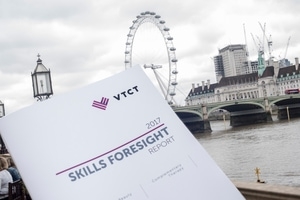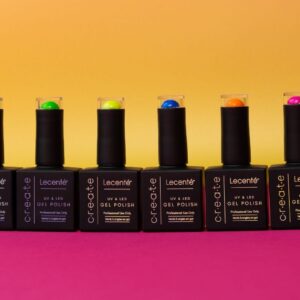HAIR & BEAUTY industries demand further regulation at Parliamentary launch
By Helena Biggs | 31 July 2017 | News

Qualifications organisation, VTCT, and The Hair and Barber Council gathered leaders in the hair and beauty sector and UK politicians to launch its Skills Foresight and the case for Mandatory Registration reports in Westminster.
It was emphasised that more needs to be done within government to recognise the value and diversity of the hair and beauty industries as chosen career paths, owing to their contribution of £7billion to the UK economy, and employment of 277,333 workers across 42,165 businesses.
The 2017 Skills Foresight report, commissioned by VTCT and endorsed by the Hair Council, quizzed 700 individuals, including employers, suppliers, trade associations and training providers. It offers insight into the changing skills landscape within the sector, and identifies ways that the government can meet any challenges and ensure high standards of training and qualifications.
“The hair and beauty industry is fighting hard to shed the label of being a default career route; the stereotypical image of a hairdresser, a barber, a beauty therapist is changing into a far more complex, multi-faceted mosaic,” comments Alan Woods, chief executive of VTCT in his opening speech.
“We are witnessing the emergence of a wider range of skills in the sector, and consumers are increasingly demanding more from their experiences, including some highly complex procedures. It is an exciting time but it also a challenging one – widespread reform of the skills and qualifications sector is underway and it is important that government takes the sector with it during this process.”
“What has been striking about this research is the considerable demand from within the sector for a more skilled workforce and a need for higher qualifications, as well as a mandatory register for hairdressers and barbers to ensure a greater level of professionalism across the board.”
The key findings of the report are:
- Roles are becoming much more technical, requiring greater knowledge and skill, and salons are offering more holistic services. Micro-needling and chemical peels are two examples of qualifications that reach degree level standard.
- There is demand for greater regulation to raise the standards of the industry, both via government enforced methods such as the Skills Plan and the Apprenticeship Levy, but also through industry-led initiatives such as a mandatory register for hairdressers and barbers, which was called for by 85% of respondents who participated in the research.
- Career routes into and through the sector are not confined to traditional job roles. New and interesting routes have been opened which include pathways into careers such as aesthetic nursing, non-surgical beauty technician, trichologist and a variety of roles supporting rehabilitation and palliative care, as well as dedicated film industry roles such as cosmetologists, and semi-permanent makeup artists.
Speaking at the event, Suki Kalirani, panel chair of the government’s institute for apprenticeships hair and beauty route, commented: “This excellent report demonstrates the need to provide a ‘fit to practice’ registration process or processes. It is clear that employers, suppliers, awarding organisations and industry bodies need to come together to support the schemes that aid the transparency of the capability of the practitioners within it.”
Download the reports in full here: http://bit.ly/VTCTSkillsForesightReport

Read the latest issue










